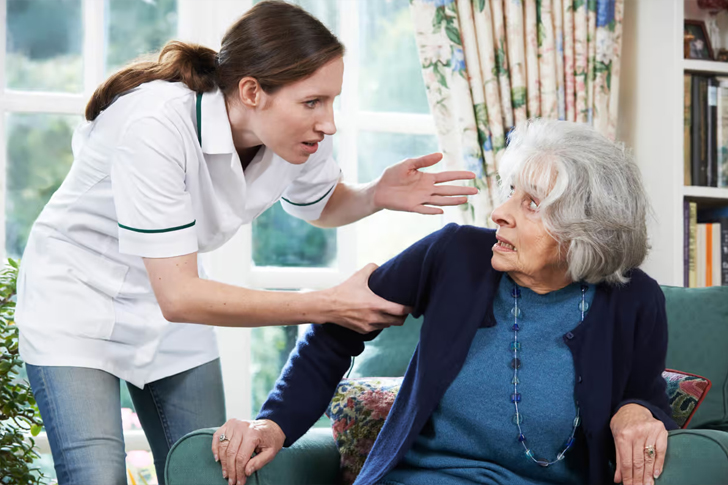Protect Your Family: Experienced Nursing Home Abuse Attorneys Available for Assistance
Dealing with the decision to place a loved one in a nursing home can be emotionally taxing. Trust is a significant factor in this process, as families rely on these facilities to provide professional care and compassion. Unfortunately, the growing number of nursing home abuse cases across the country has become a worrying issue. It’s crucial for family members to know how they can protect their loved ones and what steps to take if they suspect abuse. This is where the role of experienced nursing home abuse attorneys comes into play.

The Prevalence of Nursing Home Abuse
According to a report by the National Center on Elder Abuse, approximately 1 in 10 Americans aged 60+ have experienced some form of elder abuse. Some studies report rates as high as 5 million elders abused each year. It’s also disturbing to note that only about 1 in 14 cases of abuse are reported to authorities. These numbers suggest a hidden, widespread issue that’s not fully addressed. Resident mistreatment can come in various forms, including physical, emotional, sexual abuse, and financial exploitation.
Identifying Signs of Abuse and Neglect
Recognizing the signs of abuse is the first step in protecting your family members. Physical abuse might result in unexplained injuries like bruises, burns, or scars, while emotional abuse may cause unexpected changes in behavior like withdrawal from social activities, depression, or fear. Neglect, another form of abuse, could manifest as bedsores, unattended medical needs, poor hygiene, and unexplained weight loss. Vigilance in monitoring the welfare of loved ones is essential to catch these signs early.
The Role of Nursing Home Abuse Attorneys
If abuse is suspected, it is crucial to contact an experienced nursing home abuse attorney immediately. These lawyers specialize in elder abuse law and understand the complexities of proving abuse and neglect in court. They can offer guidance on the steps to take from the moment abuse is suspected, including how to document evidence and how to protect your loved one from further harm. Moreover, a skilled attorney can navigate through the intricacies of state laws and regulations concerning elder care facilities.
What Do Nursing Home Abuse Attorneys Do?
An experienced attorney will begin with an investigation to gather all necessary evidence, which may involve medical records, eyewitness accounts, and expert testimonies. They understand the type of documentation that is influential in court and for claims against nursing homes. Legal representation also means managing all communications with the facility and handling all legal filings and deadlines. Their expertise can significantly influence the outcome of a compensation claim, ensuring that victims and their families receive the justice and reparations they deserve.
Choosing the Right Attorney
Selecting the right nursing home abuse attorney is pivotal. It’s advisable to look for an attorney who specializes in elder law or personal injury with a focus on nursing home abuse. Checking their credentials, past case results, and client reviews can help assess their suitability. Many reputable attorneys offer free initial consultations, which can be an excellent opportunity to discuss the case and understand the legal avenues available. Additionally, discussing their fee structure upfront helps to avoid any misunderstandings later in the process.
Legal Outcomes and Compensation
In cases of nursing home abuse, the potential legal outcomes can include compensation for medical costs, emotional distress, and pain and suffering. In severe cases, punitive damages may also be awarded to deter the defendants and other facilities from similar misconduct. The actual compensation will depend on the specifics of the case, the severity of the abuse, and the competency of the legal representation.
Preventive Measures and Advocacy
Beyond seeking justice, it is vital for families and caregivers to be proactive about preventing abuse. This could involve regularly visiting the nursing home at different times, engaging with staff and management, and maintaining clear and open communication with loved ones about their care. Educating oneself about the rights of residents and the responsibilities of elder care facilities is critical. Advocacy for better laws and policies to protect the elderly can also contribute significantly to broader preventive measures.
Conclusion
Nursing home abuse is a grave issue that needs attention and action. Whether you suspect current abuse or want to take proactive steps to safeguard your loved one, contacting a dedicated and experienced nursing home abuse attorney can make a crucial difference. Legal experts not only help navigate the complex landscape of elder abuse claims but also serve as invaluable allies in the fight against negligence and mistreatment in care facilities. Combating nursing home abuse requires vigilance, knowledge, and the courage to seek justice.
Ultimately, by choosing to participate actively and intuitively in our elders’ lives and care, we can foster a more accountable and safe environment in nursing homes, ensuring dignity and respect for our most vulnerable population.







Recent Comments